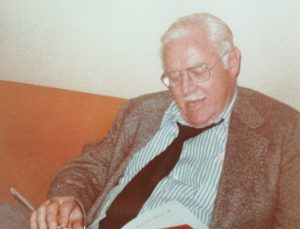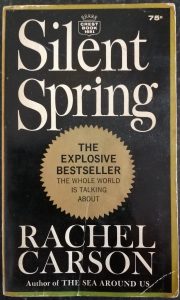Why we tell these stories…
Because nothing changes until we cease to view our neighbours as them and we as us.
Take for example the aftermath of one hearing before the Orieachtas.
 Padraic Kissane – the gently determined, brave and caring Financial Advisor who encouraged four of his tracker mortgage clients to step forward and testify before the Finance Committee.
Padraic Kissane – the gently determined, brave and caring Financial Advisor who encouraged four of his tracker mortgage clients to step forward and testify before the Finance Committee.
This was critical – a watershed moment in Ireland. The tracker mortgage abuses were well known to members of the finance committee, to the bankers and to journalists – but it was not until we had four human faces and stories – that any thing was done.
In a quiet moment, that afternoon, I witnessed a colleague ask him:
“But how did the banks think they would get away with it?”
His response:
“They used our Irishness against us.”
And for nearly a decade it worked. And to some degree it is still working. They had counted on us to be too ashamed to come forward.
And beyond shame, we are ill-informed. While the rest of the world worries about “fake news” – here in Ireland, we suffer “no news”.
And a predisposition to “willfull blindness“.
The absence of a free and vigorous press undermines any hope for accountability from government.
We have few choices.
- The state owned and operated RTE carries little to ‘out’ anything but historic wrongs (justice here requires a 30 year fermentation process). And we roll out coverage of long forgotten scandals every time we wish to distract from a current political embarrassment. Let’s roll out the long acknowledged adoption scandal to distract from disclosures tribunal, and let’s celebrate a reunion of Magdalene Laundry survivors to take some of the heat off the Cervical Check scandal. Any wonder we have a well used hashtag in Ireland – #NoCountryforWomen
- The (not very) Independent News & Media PLC has an editorial policy of having it’s reporters “get with the programme”. Theirs. Summed up simply – if it’s good for big business report it. If it’s troublesome to our friends and allies – don’t.
- Everything you need to know about a free and fair press can be found in the unapologetic way both the Taosieah and the press embraced the idea of a “strategic communications office”. And there is precedent. It’s best illustrated by a headline: The deValera Divine Right to Rule the Irish Press
And lest you think this reflects the work of conspiracy theorists, a well organised group of bankers, academics, lawyers, and professionals worked together for 4 years – coming together with a piece of legislation to be introduced in 2017 when the Dail came back into session.
In an effort to garner attention and support for the bill – over 200 press releases went out in the late spring. Individual reporters and PR professionals received it well and wrote plenty of copy. None of which got past the editors desk for publication.
Undaunted – they had their press conference – in Ireland’s – 33rd County. Irish Central covered the launch of the bill at the famine memorial in Manhattan. Given that…
..it caters to 34 million Irish Americans and 70 million Irish diaspora and receives 3.5 million unique visitors per month. It has a large and quickly growing social media following, including 500k Facebook followers, 33k Twitter followers, and 13k followers on Instagram. The website also enjoys a newsletter subscriber base of 250k.
The Irish press finally picked it up.
Church and State have colluded to maintain power by silencing citizens. And it works. Shame has kept us collectively quiet and accepting of the unacceptable. We have been afraid to rise up and take charge.
So here are some of the unreported stories I’ve experienced alongside beleaguered friends and colleagues:
- Litigant told by judge – I paraphrase – “You are right, this falls into the spirit of the law – but since the law is so poorly written I cannot rule in your favour”
- Banks claim to be negotiating – I know 2 cases where new property valuations come in- at let’s say €500k. Owner offers it. Offer rejected.
Keep in mind, no matter the original debt – all the bank or #vulture it is to be sold on to – will get for it is “market value”. To make the sale of tranches to #vulturefunds attractive – these properties need to be included – there are too few good faith negotiations.- Owner scraping by, has two properties, one mortgage. Wants to sell one – can’t afford the tax for the “on paper” capital gain. Worse – one, a Dublin property would be an excellent first home- but can’t come to market because it’s rental income secures the debt – she wouldn’t have on the second property if one could sell the first and pay it down.
These are just three of the stories people are afraid to tell – and to what end would one stand up and be counted?
The press doesn’t cover them anyway. And look what happened to Jonathan Sugarman and Maurice McCable. Stand up speak out and they’ll besmirch your reputation – or worse. This is no country for truth-tellers or whistleblowers.
People paying €600-€1500 a month in good faith – agreed amounts on account of their distressed loans – are typical of the ones whose loans are now being sold. These are not deadbeats vacationing in Spain – as we’ve been led to believe.
I highly recommend Margaret Heffernan’s TED talks on Wilful Blindness and her closing from the second –
The fact is that most of the biggest catastrophes that we’ve witnessed rarely come from information that is secret or hidden.
It comes from information that is freely available and out there, but that we are willfully blind to, because we can’t handle, don’t want to handle, the conflict that it provokes.But when we dare to break that silence, or when we dare to see, and we create conflict, we enable ourselves and the people around us to do our very best thinking.Open information is fantastic, open networks are essential.But the truth won’t set us free until we develop the skills and the habit and the talent and the moral courage to use it.Openness isn’t the end. It’s the beginning.
Please – find your voice, tell your story and be willing to listen to and engage with your neighbours – whose stories need to heard and understood.
We welcome your feedback and submissions. Relevant academic articles and examples of best practice elsewhere are of particular interest.
Tell us your story via video, voice memo or the written word. Unedited or unpolished is fine. Send your copy, video links or audio files to info@eveearley.com.



